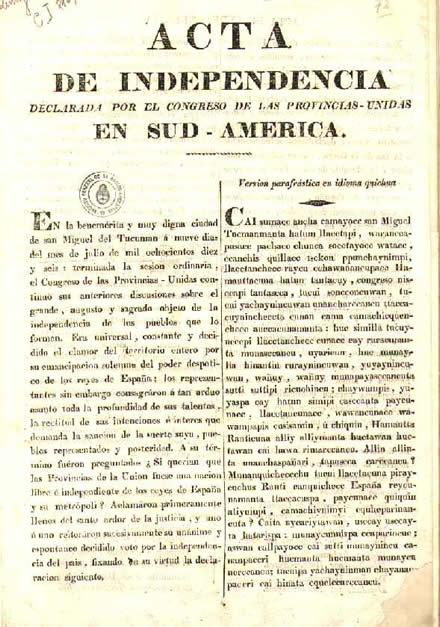Quechua language
Enlarge text Shrink textQuechua (, Spanish: [ˈketʃwa]), also called Runa simi (Quechua: [ˈɾʊna ˈsɪmɪ], 'people's language') in Southern Quechua, is an indigenous language family that originated in central Peru and thereafter spread to other countries of the Andes. Derived from a common ancestral "Proto-Quechua" language, it is today the most widely spoken pre-Columbian language family of the Americas, with the number of speakers estimated at 8–10 million speakers in 2004, and just under 7 million from the most recent census data available up to 2011. Approximately 13.9% (3.7 million) of Peruvians speak a Quechua language. Although Quechua began expanding many centuries before the Incas, that previous expansion also meant that it was the primary language family within the Inca Empire. The Spanish also tolerated its use until the Peruvian struggle for independence in the 1780s. As a result, various Quechua languages are still widely spoken today, being co-official in many regions and the most spoken language in Peru, after Spanish.
Read more on Wikipedia >
 Topic
Topic



